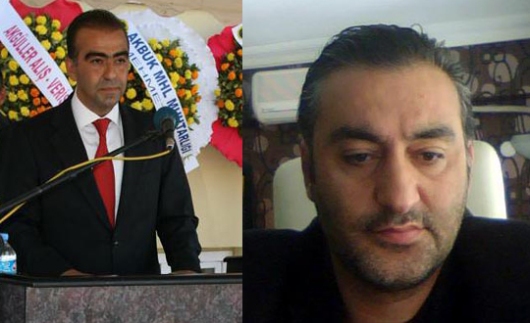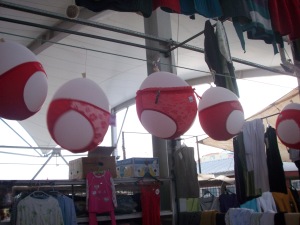Prime Minister Erdogan, I was a bit doubtful about you when you came to power but over  the years you’ve really proved yourself as one of the great leaders of our time. In fact, I’ve realised many of your strategies and tactics would work great if I applied them to my own daily life. I’m a parent of two young children and I can see many parallels between my role and yours. We both are in a position of responsibility, and our dependants don’t always appreciate that “mother knows best”! If the kids think they can do and say whatever they want, however and whenever they want, not only will it be wildly inconvenient and potentially embarrassing (being impolite to old ladies in the supermarket queue, or climbing up to the highest point of the climbing frame when it’s time to leave the playground) but also it could be dangerous: at the end of the day, you need them to stop when you say stop or they might get run over by a car. Like you, I have their best interests at heart when I expect unquestioning obedience. It’s about being a parent, not a friend.
the years you’ve really proved yourself as one of the great leaders of our time. In fact, I’ve realised many of your strategies and tactics would work great if I applied them to my own daily life. I’m a parent of two young children and I can see many parallels between my role and yours. We both are in a position of responsibility, and our dependants don’t always appreciate that “mother knows best”! If the kids think they can do and say whatever they want, however and whenever they want, not only will it be wildly inconvenient and potentially embarrassing (being impolite to old ladies in the supermarket queue, or climbing up to the highest point of the climbing frame when it’s time to leave the playground) but also it could be dangerous: at the end of the day, you need them to stop when you say stop or they might get run over by a car. Like you, I have their best interests at heart when I expect unquestioning obedience. It’s about being a parent, not a friend.
And not just that, it’s also about building a foundation of respect for authority. One of the great obstacles the western world is facing is the erosion of the value of respect. I want my kids to grow up to respect those in authority (me), and if there’s one thing that, for me, symbolises lack of respect, it’s when my children ignore what I’m saying to them and carry on with what they’re doing, no matter how loud I shout. Especially at dinner time. It really makes me crazy when I’ve spent hours making their favourite meal and when it’s ready they don’t want to eat it and want to eat snacks in front of the telly instead.
Of course, there are differences. You were elected by the people of Turkey whereas I’m a parent by a happy accident of biology – or by God’s will, if you prefer. You were elected. By a huge majority. The people spoke, and they chose you. If a few dissenters don’t like it they should have worked a bit harder and won the election themselves, am I right? High five!
And another key difference: my kids – or my people, if you like – are both under four. In fact, one of them can’t actually speak yet. So they could be forgiven for not yet having learnt the lesson that it’s wrong to disagree with mum and dad. Whereas your people really have no excuse for playing up! By law, the electorate is over 18 – plenty old enough to understand the concept of respect. What do they expect if they choose to defy you, publicly, when you’ve put your foot down and made your position absolutely clear? They’re a bit old to be sent to the naughty corner, though you’ve made an example of a few loudmouths by sending them to the naughty cezaevi.
And as that hasn’t worked, the logical thing is to move the game up. Tear gas, water cannons and a good bop with a truncheon. Super Nanny doesn’t recommend it, but Super Nanny never had to deal with this level of disobedience! I’ve yet to work out how to translate that to the home though – do you have any thoughts about issuing domestic-grade tear gas at all? I guess the garden hose would do for a smaller scale water cannon, but I don’t really want to get the furniture wet and all that water would play havoc with the TV.
And yes, we get that it’s not always everyone who’s being naughty. In fact it’s generally a few bad apples ruining things for the rest. But the best thing for sure is to clamp down hard on everyone involved, no matter how loosely, just to make sure that you get the message across that bad behaviour will not be tolerated!
Another tactic that I admire, and realise that I have actually been using myself, is subtle control of the media. I’m sure everyone would agree that some things are just not appropriate for young children. I’m happy for my kids to watch pretty much anything on CBeebies; Sesame Street is nice, and educational too; and there are a good few cartoons that have well-considered themes that help reinforce good values. But of course I don’t let them watch shows with themes I think might encourage them to behave badly. If they see too much bad stuff on TV they might think it’s okay to do the same. And no way do I let them use Twitter or Facebook! They could come across all kinds of nasties on there. So, once again, a big thumbs up from me on that subject.
And naturally I want my kids to grow up to share my own values and I do my best to steer them in the right direction – not only leading by example but enforcing when necessary. I’m not so hot on the topics of immodest dress, public shows of affection and alcohol but I guess you can draw similarities with my stances on smoking and, say, religious intolerance or racism? If I was Prime Minister I’d be pretty tempted to discourage those things by law, so I’ve got to say, kudos to you for using your position to boost the values you yourself hold dear.
So, on the whole, Prime Minister, I want to thank you for showing me the light. A family is not a democracy and it’s time for me to stop pussy-footing around and show the kids who’s boss around here!



 In fact, apart from one rogue ad for men’s razors, these are the only men selling products in Barbie’s world. Turkish advertisers clearly don’t think Turkish men watch Barbie! And they obviously don’t think Turkish men do much cleaning. How sexist. So me and my daughter will get back to watching Barbie while I do the housework. I wonder where my husband is?
In fact, apart from one rogue ad for men’s razors, these are the only men selling products in Barbie’s world. Turkish advertisers clearly don’t think Turkish men watch Barbie! And they obviously don’t think Turkish men do much cleaning. How sexist. So me and my daughter will get back to watching Barbie while I do the housework. I wonder where my husband is?

















